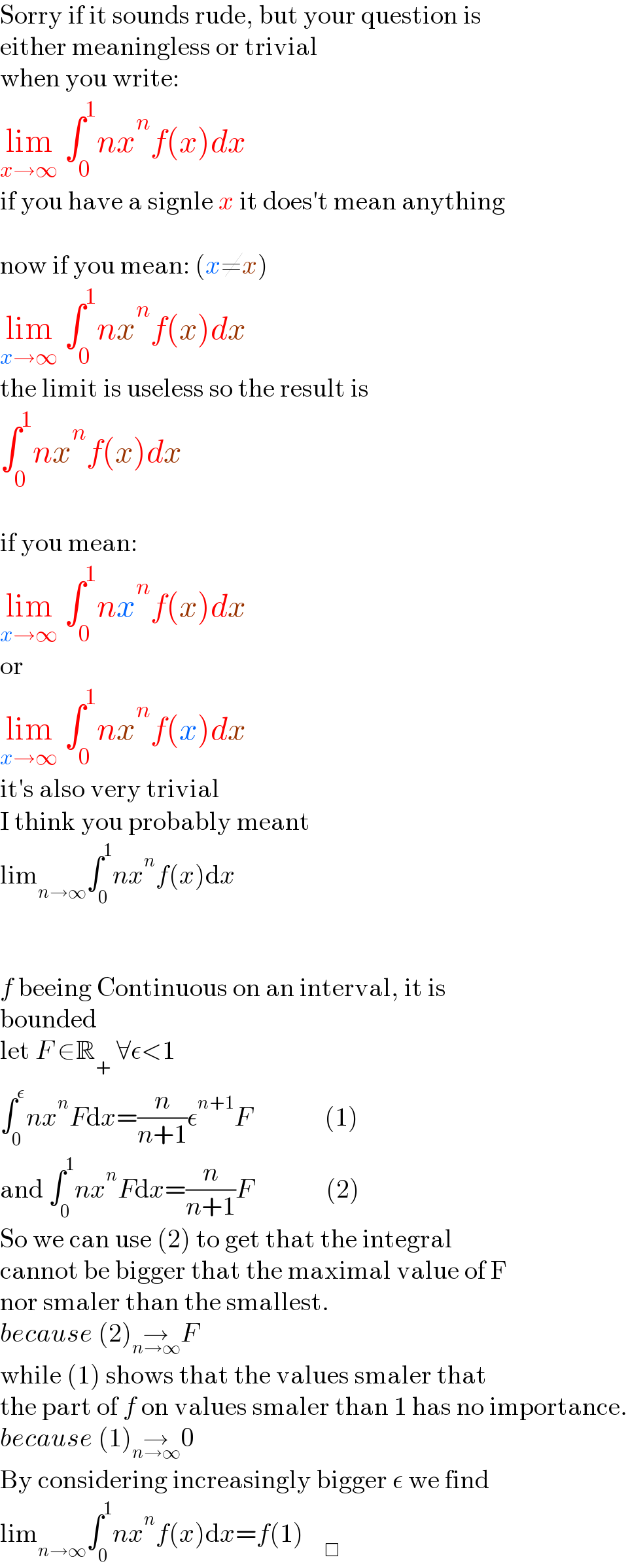
Question and Answers Forum
Question Number 174876 by infinityaction last updated on 13/Aug/22
![let f:[0,1]→R be a continuous function ditermine (with appropriate justification) the following limit: lim_(n→∞) ∫_0 ^1 nx^n f(x)dx](Q174876.png)
Answered by TheHoneyCat last updated on 13/Aug/22

Commented by infinityaction last updated on 13/Aug/22

Commented by TheHoneyCat last updated on 23/Aug/22

